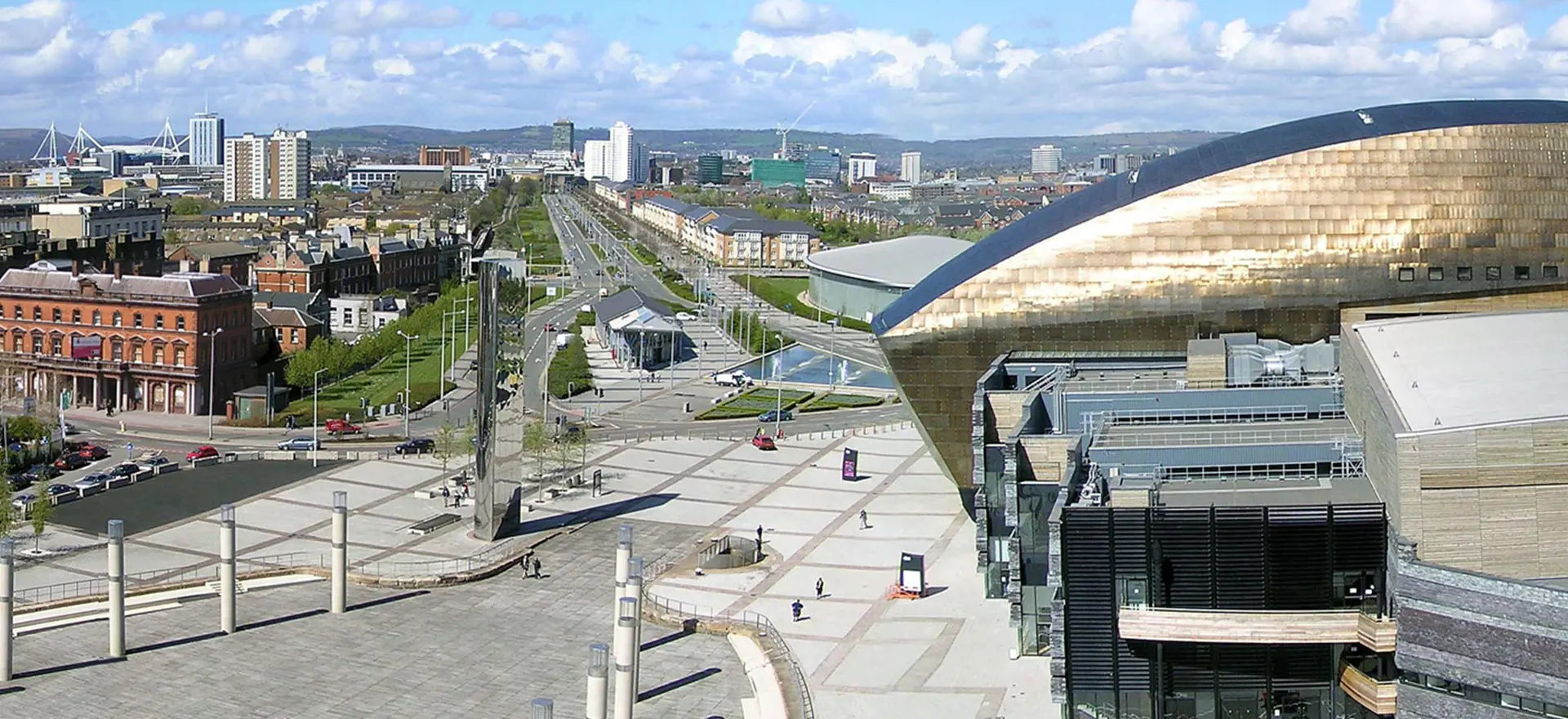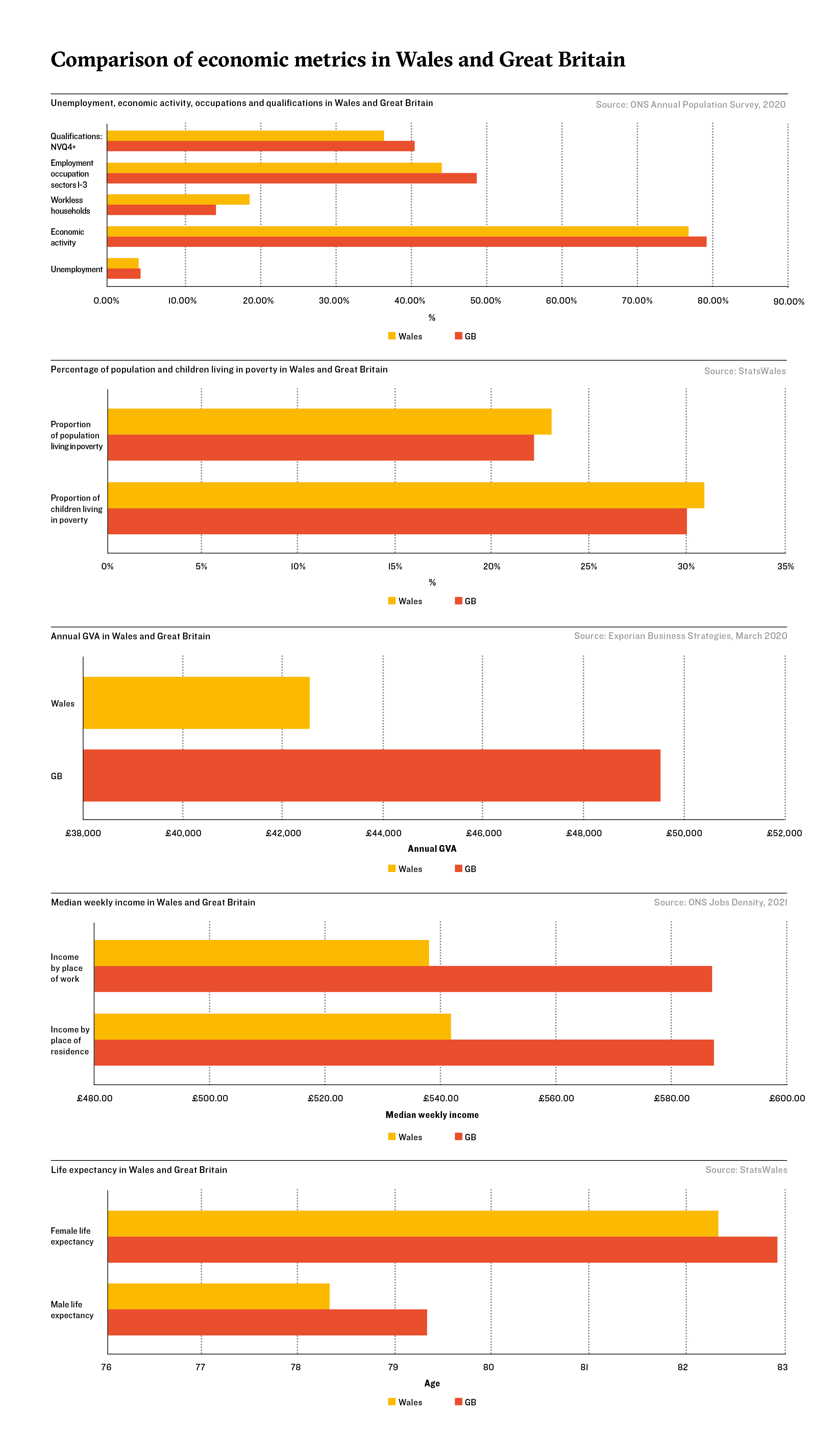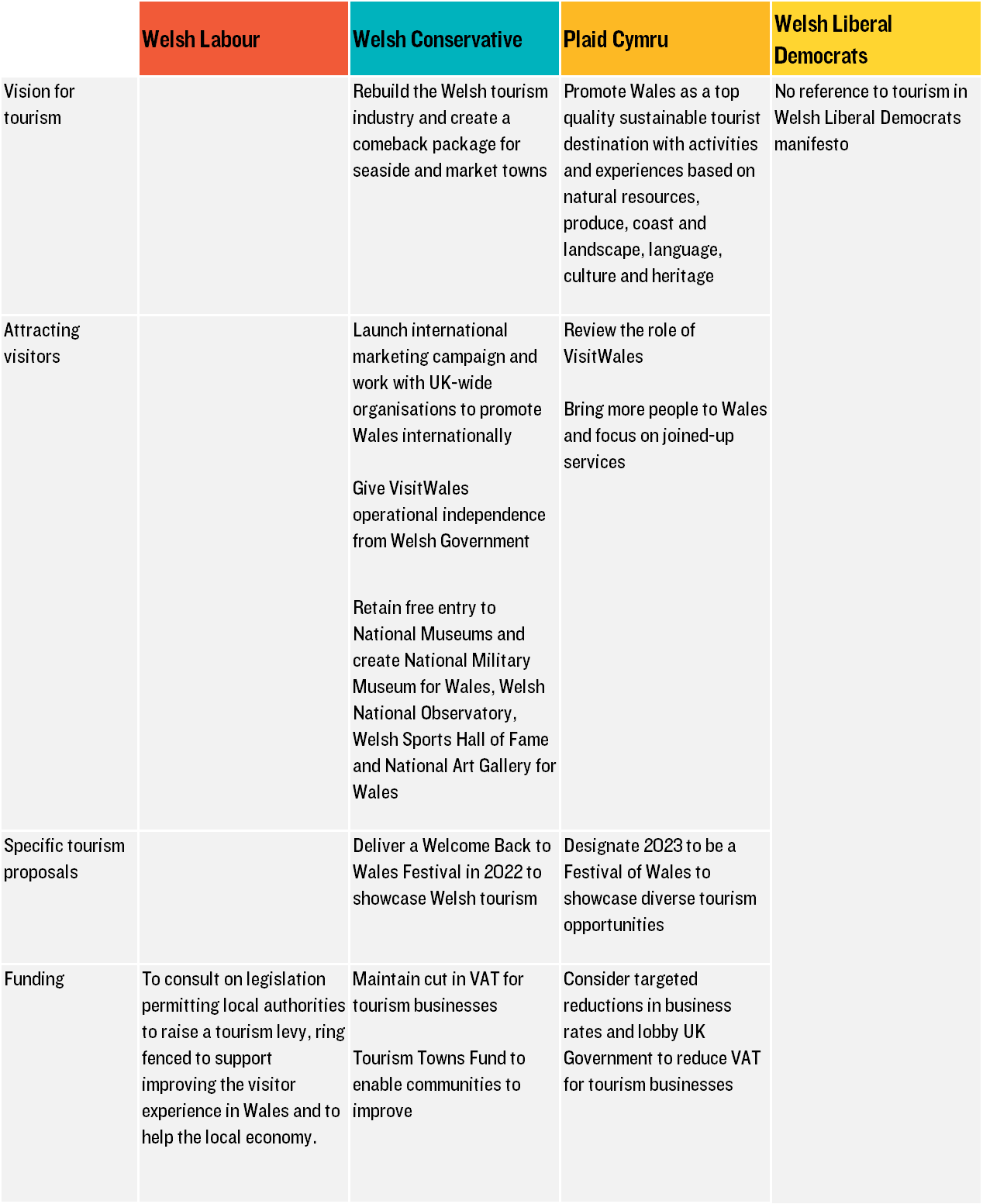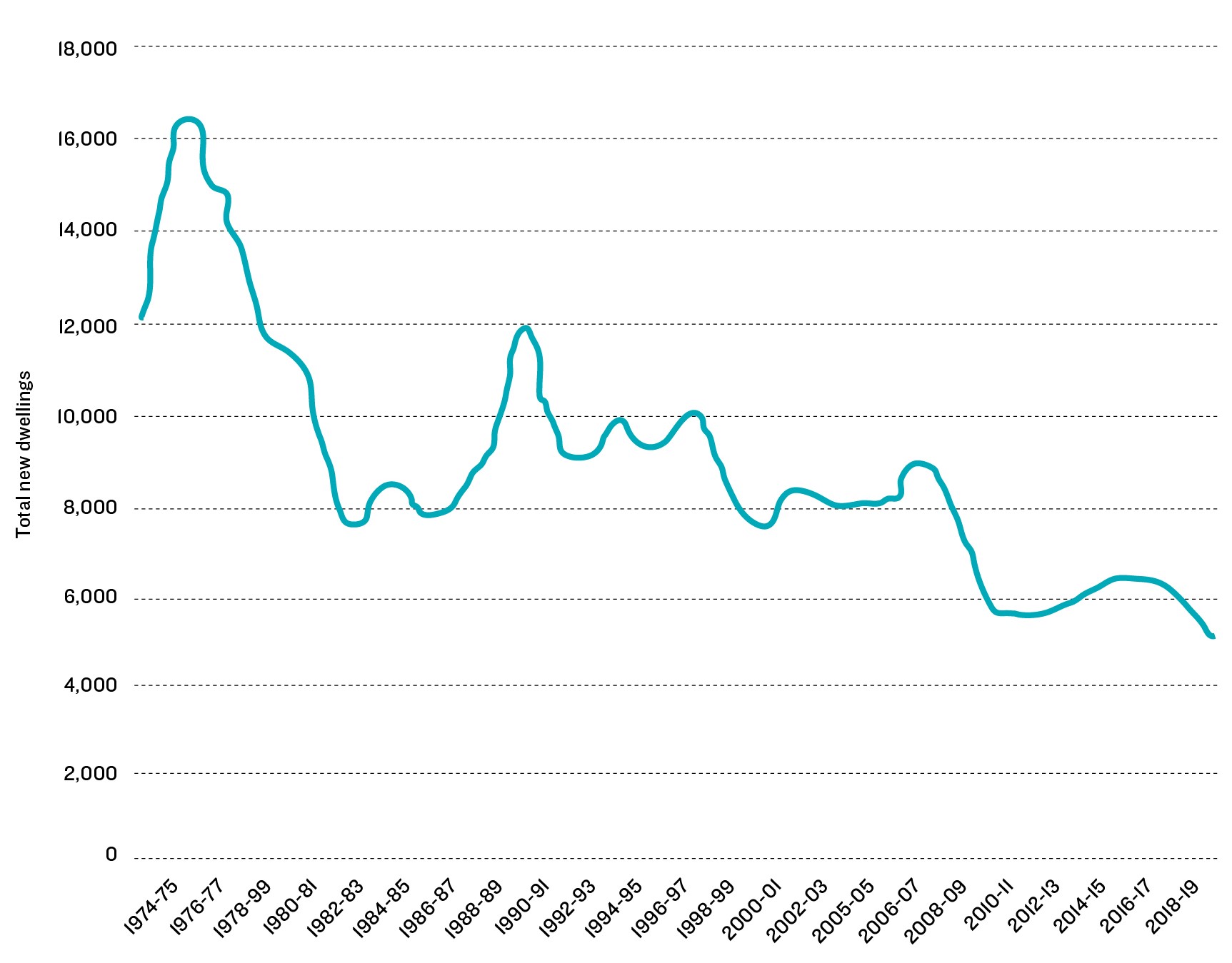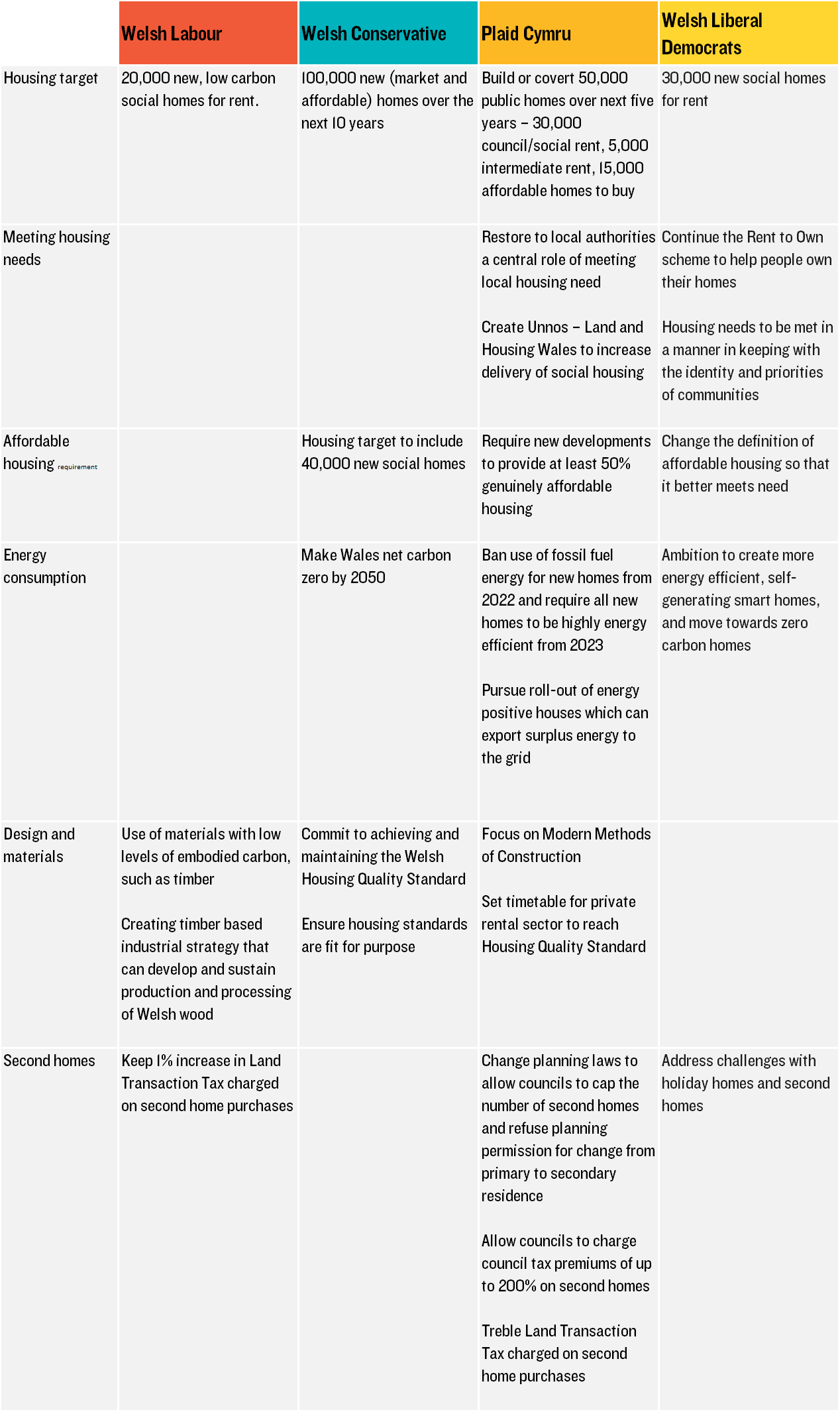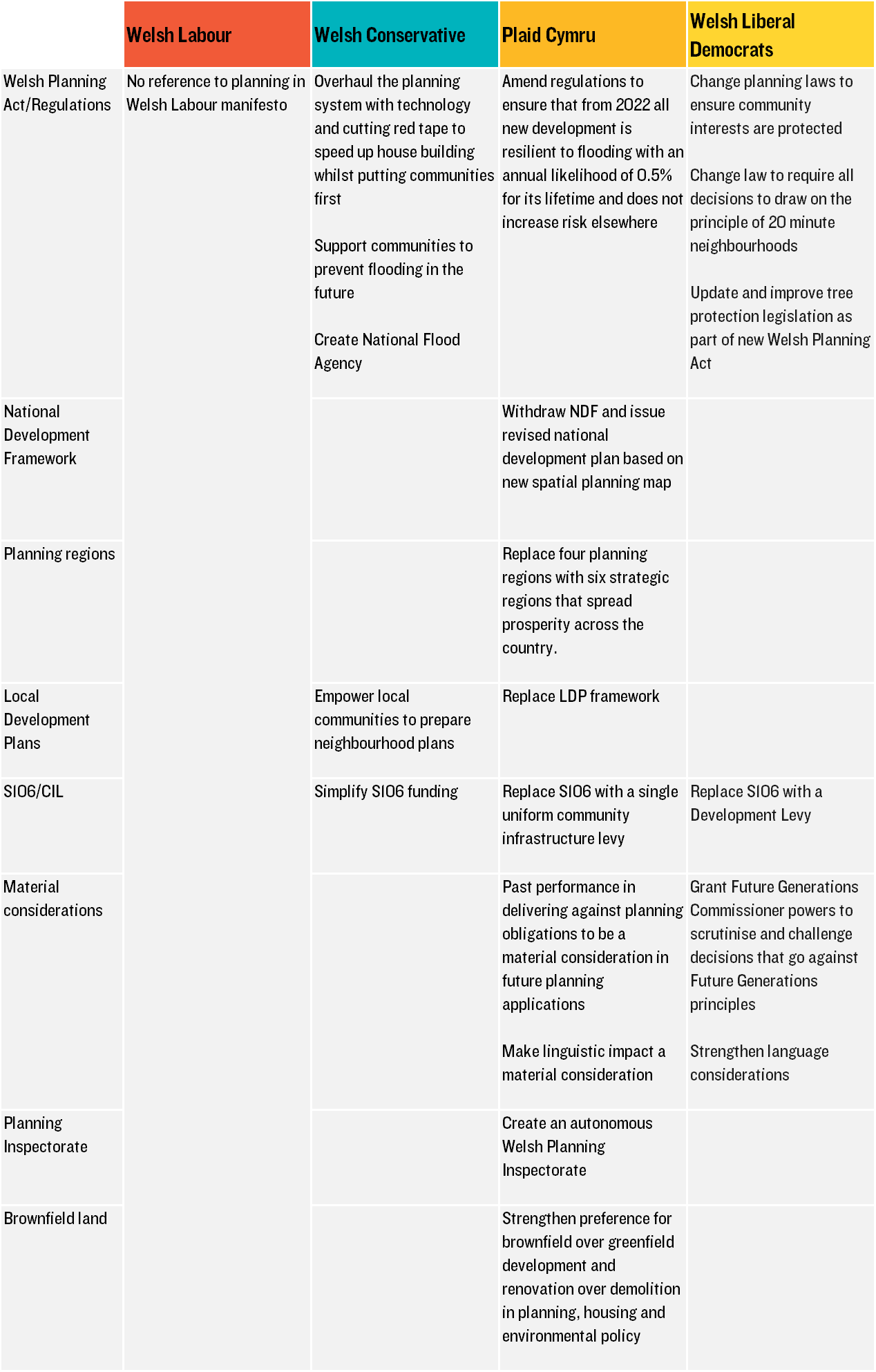The people of Wales go to the polls on 6 May in the sixth general election since the formation of the Senedd (formerly the National Assembly for Wales) in 1999. This will be an election like no other that we have seen. Set against the backdrop of the Covid-19 pandemic, policies relating to health and economic recovery are central to the manifestos of all of the main parties. This will also be the first general election in which 16 and 17 year olds are able to vote. The impact of this context remains to be seen – as Labour seeks to retain the control on the Senedd that it has maintained for the past 22 years, and looks to achieve an overall majority for the first time.
This blog provides a high-level summary of the key policies of the four main parties in Wales on a number of key areas: the economy, tourism, housing and planning. It is not intended to set out in detail all of the policies of each party but instead provides a broad overview of the policy context that may shape the development industry over the next Senedd term. Whilst all of the parties seek to chart a course to the post-Covid future, with common themes including a return to the freedoms that we once took for granted, a growing economy, and a greater focus on environmental concerns, their specific targets and policies vary considerably.
The economy
As illustrated below, the economy of Wales lags behind that of the UK in a number of key metrics. This has been a long term structural characteristic, but
research undertaken by Lichfields in April 2020 found that large parts of Wales were subject to a particularly high risk of economic harm as a result of Covid-19. Whilst Wales has clearly not been the only part of the UK to experience decline, its underlying structural base and differences in the lockdown restrictions have had a profound effect. Rebuilding the economy – and narrowing the divide with the rest of the UK – must be at the heart of the next government’s agenda.
Figure 1 Comparison of key economic metrics of Wales and Great Britain
Tourism
Tourism is one of the key economic sectors in Wales which accounts for over 9% of total employment. Prior to Covid-19, tourism enjoyed rapid growth but there were 100m fewer visitor days in 2020 compared to 2019. The economic impact of Covid-19 on the Welsh tourism sector in 2020 amounted to £6bn – equivalent to 63% of 2019 value of the sector.
However, tourism has a significant role to play in the economic recovery of Wales with there being significant pent-up demand to go on holiday and foreign holidays remaining in doubt for 2021. Going forwards, the tourism sector will look to the Welsh Government for policies that support its future development and enable it to contribute towards economic recovery across Wales.
Housing
Like the rest of the UK, Wales is in the midst of a housing crisis. Fewer than 6,000 dwellings were completed in 2018/19, against estimates of need of between 9,000 and 12,000 which is itself is below the average of 14,000 completions each year in the 1970s.
Figure 2 Housing completions in Wales 1974-5 to 2018-19
Source: StatsWales. Note data for 2018-19 does not reflect a full year
Against this context – and in recognition of the clear economic, social and environmental benefits associated with an increase in housing delivery, it is not surprising that each of the main parties in Wales have included policies relating that address the need to increase the supply of new housing. However, the scale of growth that is anticipated by each party varies very significantly, as does the emphasis that has been placed on the provision of market – as well as affordable – housing.
Planning
The planning system is central to the delivery of all the objectives of each party relating to economic growth and housing supply. Whilst the Labour manifesto is silent on the topic, the other main parties include a range of measures that will update the system and – to a lesser or greater extent – undo many of the recent changes that have been made to the planning system in Wales.
The bottom line
We know not to focus too much on opinion polls but these continue to put Labour ahead – albeit not by enough to achieve its long-sought majority. Because of Covid restrictions necessitating the quarantining of ballot papers after the polls close, we will not know which party – or parties – will form the next Welsh Government quite as quickly as usual.
The specific shape of the legislative agenda that emerges over the next Senedd term will depend on the political landscape after 6 May, the extent to which Covid-19 continues to derail the usual business of government, and the ability of the next government to fund its package of policies in the context of a severely weakened economy and an historic national deficit.
Our ask of whichever party is in power next month would be to prioritise the following:
1. Increase the delivery of market and affordable housing – recognising the importance of housing in both sectors to build mixed and sustainable communities, house the local workforce, and ensure that everyone has access to a good quality home. Increasing the delivery of housing will also have a profound economic benefit in terms of investment, direct and indirect job creation during the construction phase, and on-going spending by residents once the homes are occupied.
2. Require a realistic assessment of need for housing and reward those authorities that meet/exceed their housing targets.
3. Support the reuse of brownfield land but recognise that there is insufficient previously developed land to meet our future development needs.
4. Focus on economic recovery, driven by emerging sectors – including environmental/green sectors – whilst also recognising the role of existing economic strengths, including:
a. Biosciences/medtech;
b. High tech sectors;
c. Manufacturing;
d. Logistics;
e. Creative industries;
f. Tourism; and,
g. Agriculture.
5. Strategies should be prepared for each of these sectors, recognising the existing strengths in different parts of Wales, the challenges and issues that exist and the policy interventions that would ensure that their future economic contribution could be maximised.
6. Maintain an adequate and well-trained workforce in order to encourage inward investment and indigenous growth.
7. Ensure that the planning system is equipped to facilitate the economic and housing growth that Wales needs if it is to complete nationally and internationally.
Disclaimer: This blog has only been able to provide an overview of policy proposals in a number of key areas. Copies of each of the main parties manifestos are available here:https://movingforward.wales/#manifestohttps://www.conservatives.wales/plan-recovery-and-changehttps://www.partyof.wales/manifestohttps://www.welshlibdems.wales/manifesto21



